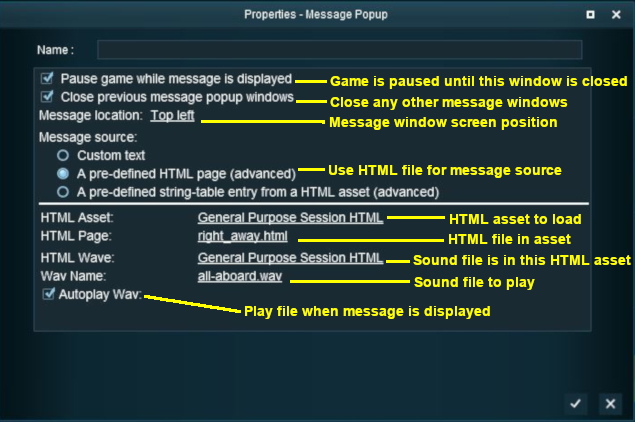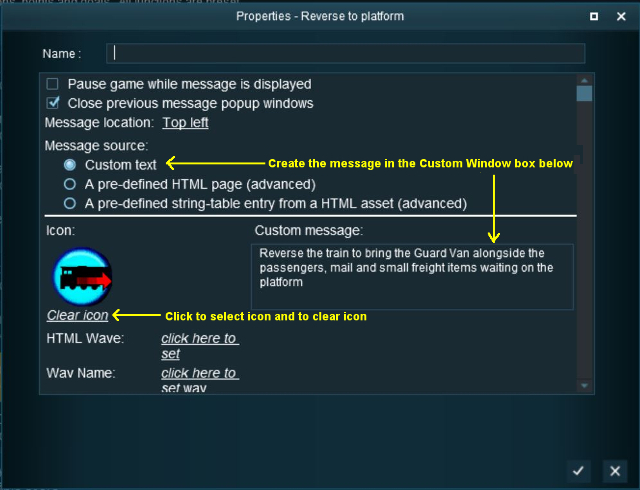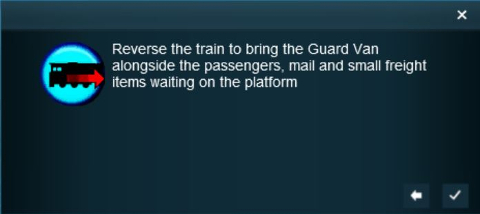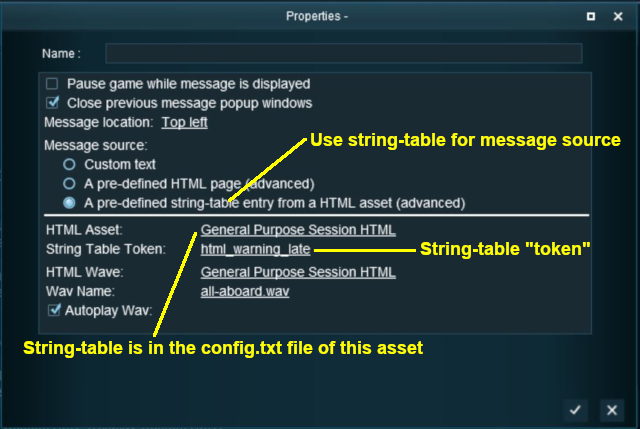How to Use Message Popup Rule
(→Using a Custom Message) |
(→Using a Custom Message) |
||
| Line 66: | Line 66: | ||
*You can select and display an optional icon with the message.</td> | *You can select and display an optional icon with the message.</td> | ||
</tr> | </tr> | ||
| − | </table></td> | + | </table><br> |
| + | See the Trainz Wiki Page '''[[How to Create a HTML Asset]]''' for more information.</td> | ||
| + | </td> | ||
</tr> | </tr> | ||
</table> | </table> | ||
Revision as of 10:02, 8 July 2018
Contents |
| The Message Popup Rule is a T:ANE Session Rule that creates onscreen messages for users in Driver Mode. |
The screenshots below illustrate how to use the Message Popup Rule.
Using a HTML Page
The settings shown in this example will direct TANE to load the message from a HTML file in a HTML asset.
 |
Settings in This Example:
|
Using a Custom Message
The settings shown in this example will direct TANE to load the message from text entered in the Custom Message box.
 |
Settings in This Example:
See the Trainz Wiki Page How to Create a HTML Asset for more information. |
</td>
 |
The custom message popup created by the example shown above |
Using a String-Table Message
The settings shown in this example will direct TANE to load the message from text stored in the config.txt string table of a specified HTML asset.
 |
Notes:
string-table
{
html_warning_late "You are running late!"
}
...which will produce the message "You are running late!" from the Message Popup Rule settings shown on the left.
|
Trainz Wiki
- How to Guides
- Session Rules List (Alphabetical) with Parameters
- Session Rules List (Categories) With Parameters
Route Creation Tutorials:
Session Creation Tutorials:
- Adding Message Popups - Applications
- Adding Navigation Points
- Adding Navigation Points - Applications
- Configuring the Driver Setup Rule
- Controlling Junctions in Sessions
- Controlling Signals in Sessions
- Creating a HTML Asset (Session Introduction Page and In Game Messages)
- List of Parent Rules
- Parent and Child Rules
- Using Track Triggers
- Using Variables in Sessions - Examples